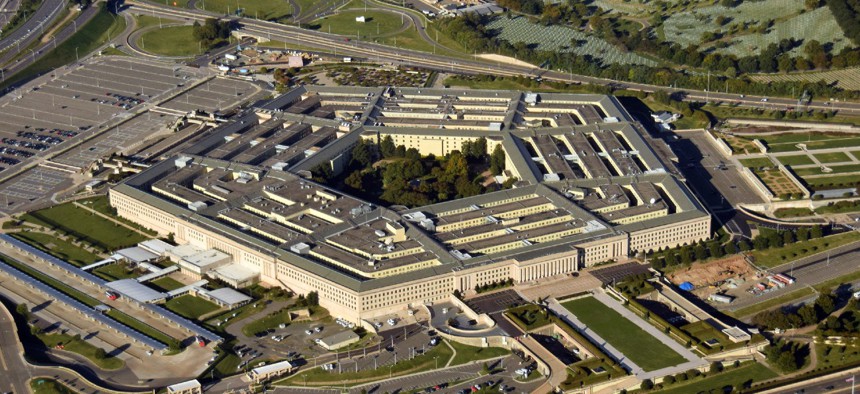
Ivan Cholakov / iStock.com
Nearly 90% of Pentagon Employees Said Telework Hasn't Hurt Productivity
A report from the Defense Department’s inspector general found that early IT issues following the shift to maximum telework stemmed from component agencies failing to perform required test runs.
A recent survey of military and civilian Defense Department employees found that 88.1% of those who were able to telework due to the COVID-19 pandemic found that they were as, if not more, productive working remotely as when they commuted to their traditional worksites, according to a report issued last week by the department’s inspector general.
The inspector general conducted a survey of civilian and military personnel across the Defense Department and found that although the vast majority of employees who have worked remotely in some capacity over the last year have had positive experiences, that wasn’t always the case. Workers at some component agencies within the Defense Department ran into technical difficulties in the early months of the federal government’s maximum telework stance, although most of those problems were resolved by August.
According to the inspector general, many of these issues could have been avoided had some agencies conducted telework exercises ahead of time, as was required by the Defense Department’s National Strategy for Pandemic Influenza Implementation Plan and telework policy. Among the issues some agencies ran into were limitations on how many could connect to the Pentagon’s network remotely as well as equipment and application shortfalls and malfunctions.
“Based on the results of the survey and interviews with DoD officials, the DoD’s initial challenges occurred because some DoD components had not fully tested whether their information systems could support government-wide mandated telework and had not conducted telework exercises with their personnel before March 2020 as required by the DoD Implementation Plan and the DoD telework policy,” the report stated. “[While] the Marine Corps, Defense Contract Audit Agency, Defense Information Systems Agency and the [Defense Logistics Agency] were able to immediately transition to maximum telework, the Army, Navy, Air Force, Defense Contract Management agency, Defense Finance Accounting Service and [Defense Health Agency] faced challenges during the transition.”
Before the pandemic, only 6.2% of survey respondents worked remotely on a full-time basis, while another 59.5% said they were on telework on a part-time basis. Following the shift to maximum telework, 55.8% of employees worked entirely from home, while 32.5% of respondents said they worked remotely on a part-time basis. Another 11.7% of respondents said they still worked entirely at their traditional worksite, typically because they either had nonportable work or were otherwise not eligible to telework.
Of the 17,733 survey respondents who reported they still only worked remotely part of the time, more than one-third said their office had split into teams who worked at their worksite in shifts to maintain social distancing, while most others either needed to periodically visit the office to retrieve documents or access classified information or systems.
The inspector general cited the Defense Contract Management Agency as an example of how agencies who initially had issues with the transition to maximum telework eventually solved problems with the program.
“Of the DCMA survey respondents, 48.7% reported having ‘many’ problems and 26.1% reported having some problems connecting to the DCMA network during the first two weeks of maximum telework,” the IG wrote. “At the time of the survey in August 2020, only 3.4% of respondents reported still having ‘many’ problems and 9.3% reported having some problems, while 50.1% reported having no problems connecting to the DCMA network.”
The inspector general recommended that the Defense Department revise its pandemic implementation plan to update its planning assumptions when it comes to telework, and to ensure that component agencies conduct the required testing of the systems involved in shifting to a maximum telework posture.
“We recommend that the under secretary of Defense for policy, in coordination with the under secretary of Defense for personnel and readiness, establish management oversight procedures to verify that DoD components have performed the testing, training and exercise requirements of the DoD implementation plan and the DoD telework policy,” the report stated. “The oversight procedures should assess the ability of DoD components to support government-wide mandated telework, including the results of tests of networks and communications systems and telework exercises with personnel.”
The Defense Department did not respond to the recommendations regarding updating its pandemic plans, although it did agree to push for better oversight procedures to ensure that component agencies do the required IT infrastructure testing.







